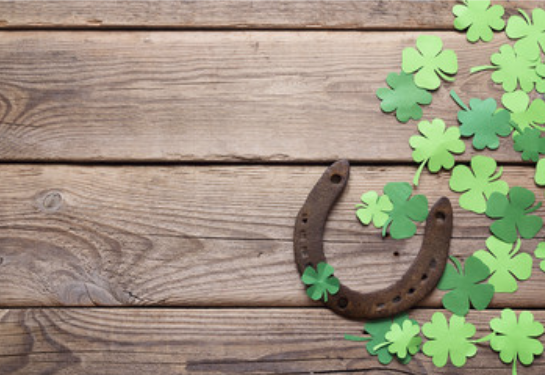|
“I am a great believer in luck. The harder I work, the more of it I seem to have.”
- unknown, dating to at least the 1800s I stand in absolute awe of people’s unwillingness to consider scientific reductionism. Instead of examining causes and effects, mechanisms and causality, people just like to attribute outcomes to superstition: luck, divine providence, heredity, genetics, “randomness.” No. There are actual traceable and defined causes for everything. And there are really acute manners of altering those outcomes. Where it’s oddest is among people who’ve directly observed counterexamples to their own belief system. They view actual and real life debunking of the “luck” hypothesis, and then they continue to hold onto their luck beliefs. It’s really quite disempowering and victim-narrative-promoting. In philosophy and developmental psychology, they call this cognitive dissonance. Let’s say that you believe that transmission of thoughts through the air is magic. Then someone shows you a smart phone. You must amend your belief or disregard that you observed a smart phone. You must make consonant your beliefs and your learning. In fact, I would argue that by and large people acquire more memorized facts and factoids, but generally don’t learn. Learning means that you don’t carry the exact same philosophy today as yesterday. But you can see that people subscribe to the identical political position or cultural belief now which they held a year ago, 5 years ago, 10 years ago. Is that learning? Obviously not. You are memorizing more facts and factoids. You haven’t been learning for a very long time. Recently, a client of mine painted himself into a corner, wondering about what other “breakfast foods” I could think of. I said, “breakfast is a time, not a food.” His mind was blown. When the paradigm doesn’t work, you need to question IT, not ask more questions inside of the faulty paradigm. I see the same with all the superstition beliefs, especially luck. You get confronted with a clear example how people make “luck,” and you can amend your superstition or you can delete the evidence. Even for myself, I sometimes forget the hearty digging I had to do to get where I am. People who’ve known me closely in the past 15-20 years have seen me gain 80lbs of muscle, become leaner at 240lbs than I was at 160lbs, become stronger and more functional after Lyme disease than before it, and without surgery improve orthopedic problems which supposedly require surgery. This was luck? No, friend. I studied incredibly hard and slaved for years to develop the portfolio of skills I have. Every single day I get piles of inquiries about coaching. Some of it is in response to posts like a YouTube video I did where I showcased a condition on my right knee that classically necessitates surgery. Even my family forgets that I had a period of time where I was limping around and couldn’t squat down or get on or off an air mattress. I’m not better because of luck. I’m better because I hazard to ask questions most human brains won’t entertain: 1.) what do I currently believe which may be wrong? 2.) what do I take for granted? 3.) what is a better way? Active humility. This is a searching. Instead of seeking ways to substantiate myself, my ego, my little roles and titles and philosophies, I’m seeking better ones. So I don’t gift myself the incredible luxury of superstition, chalking things up to luck and unfair systems. You think this was luck? Maybe. But I think in a way as if there is no such thing as luck.
0 Comments
Your comment will be posted after it is approved.
Leave a Reply. |
Elev8 Wellness
|
LIVE. AWESOME.We offer the highest quality in personal fitness, nutrition, and mindset coaching, helping you achieve your fitness, health, wellness and performance goals no matter the obstacle. With virtual online training and private, in-studio training we make it easier to reach your wellness goals safely.
No more can't. No more not good enough. If you compete in a sport, let your mind no longer hold you back from being the greatest. If you don't, let your mind no longer hold you back from being the best version of you that you can be. Sign-up for a Tour Covid Screen Waiver Elev8 Waiver Become an Elev8 Instructor Space Rental |
6244 lyndale ave. s., minneapolis, mn 55423
|
© 2021 Elev8 Wellness LLC. All Rights Reserved. site map | contribute | SITE BY Sproute Creative


 RSS Feed
RSS Feed
